Media coverage
Share

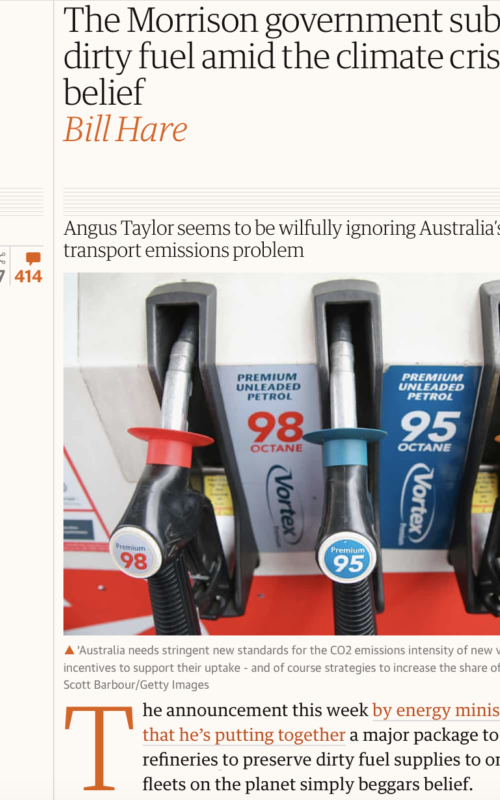
The Guardian
The announcement this week by energy minister Angus Taylor that he’s putting together a major package to prop up oil refineries to preserve dirty fuel supplies to one of the dirtiest car fleets on the planet simply beggars belief. It doesn’t have to be like this. Commentary by Bill Hare, CEO of Climate Analytics.
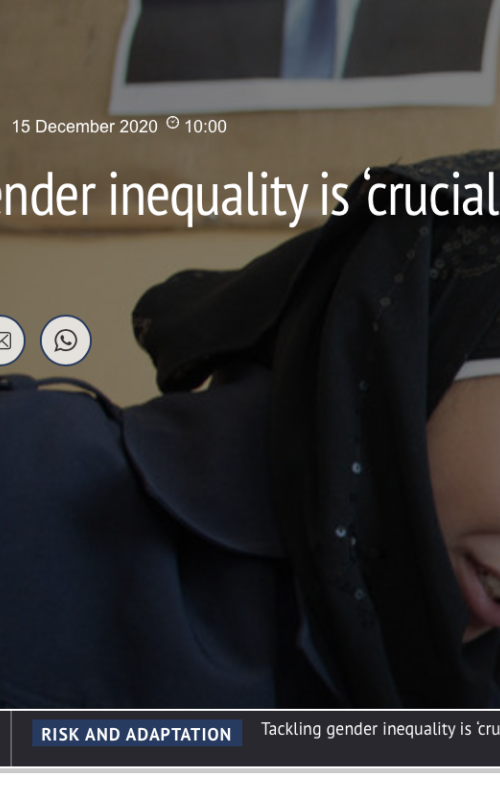
Carbon Brief
A new study lead by Climate Analytics researchers, published in Nature Communications, shows that empowering women through improved healthcare, education, and representation in government could help societies adapt more quickly and easily to the impacts of a changing climate.
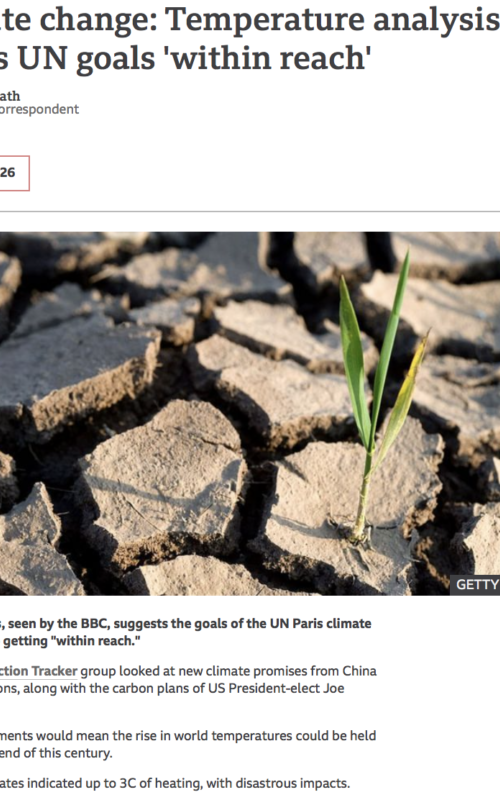
BBC
A new analysis, seen by the BBC, suggests the goals of the UN Paris climate agreement are getting "within reach." The Climate Action Tracker group looked at new climate promises from China and other nations, along with the carbon plans of US President-elect Joe Biden. These commitments would mean the rise in world temperatures could be held to 2.1C by the end of this century.
Previous estimates indicated up to 3C of heating, with disastrous impacts.
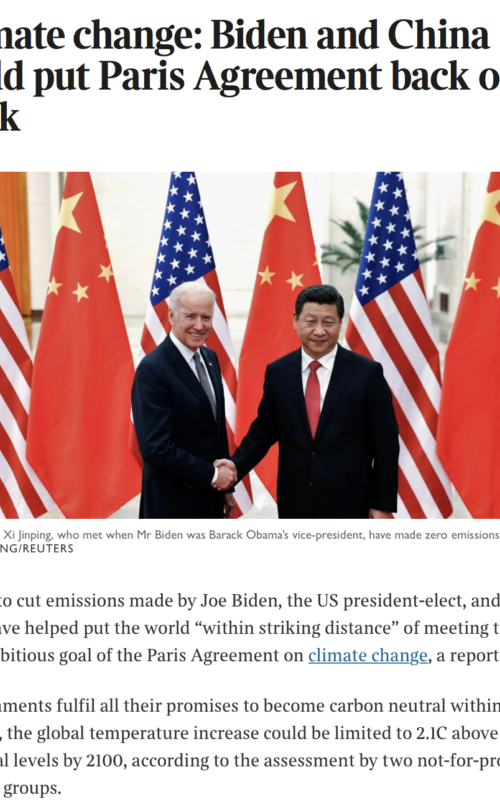
The Times
Pledges to cut emissions made by Joe Biden, the US president-elect, and China have helped put the world “within striking distance” of meeting the most ambitious goal of the Paris Agreement on climate change, a report says. If governments fulfil all their promises to become carbon neutral within 30 or 40 years, the global temperature increase could be limited to 2.1C above pre-industrial levels by 2100, according to the assessment by two not-for-profit research groups.
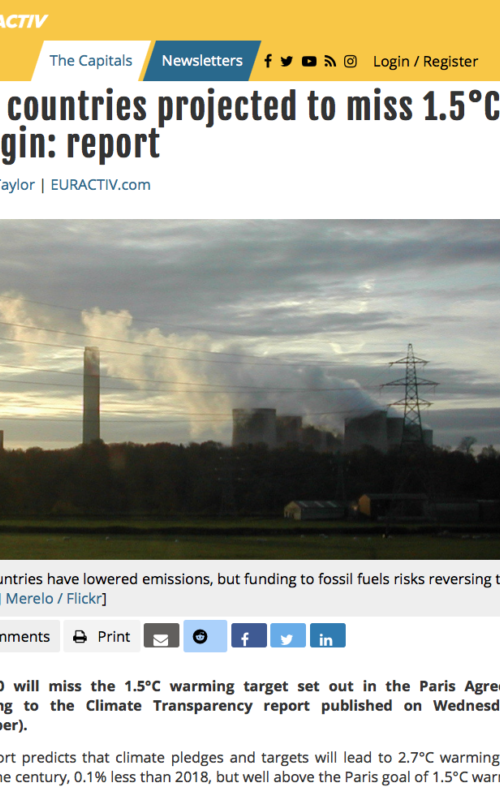
Euractiv
The G20 will miss the 1.5°C warming target set out in the Paris Agreement, according to the Climate Transparency report published on Wednesday (18 November). “The implementation of current targets will lead to a 2.7°C temperature rise by the end of the century. There is a substantial gap. The question is how do we close that gap and how do we move towards 1.5°C,” said Deborah Ramalope, team leader for policy analysis at Climate Analytics.
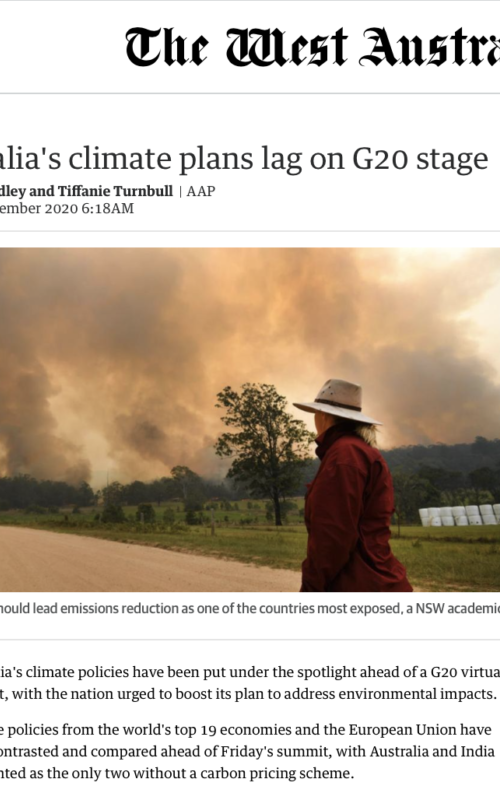
Australian Associated Press
Australia's climate policies have been put under the spotlight ahead of a G20 virtual summit, with the nation urged to boost its plan to address environmental impacts. "The Australian government has few policies to address these issues, and its international reputation is at stake" - Bill Hare, CEO of Climate Analytics.
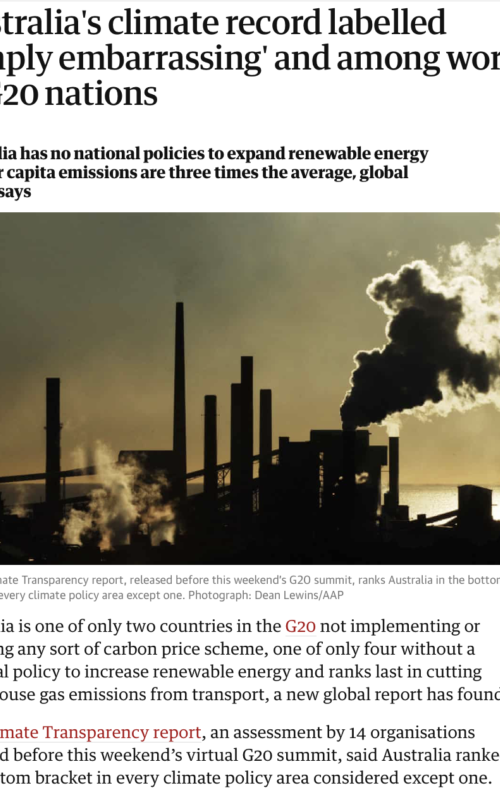
The Guardian
Australia is one of only two countries in the G20 not implementing or planning any sort of carbon price scheme, one of only four without a national policy to increase renewable energy and ranks last in cutting greenhouse gas emissions from transport, a new global report has found. “When measured up against other G20 nations, the Australian government’s record is simply embarrassing” - Ursula Fuentes-Hutfilter, a senior policy adviser with Climate Analytics, which contributed to the report.

The Washington Post
President-elect Joe Biden has pledged to begin the process of rejoining the Paris agreement with the stroke of a pen. As important as this will be, a more significant demonstration of Biden’s determination to rejoin the international fight against climate change will come in the form of the target the United States then puts on the table as its contribution toward meeting the goals of the agreement - op-ed by Australia's former PM Kevin Rudd and CEO of Climate Analytics Bill Hare.

The New York Times
The U.S.-China relationship is at its lowest point in a half century, but there are also converging interests on global warming. How effectively the two biggest economies - and sources of the climate problem - can pivot their economies away from fossil fuels is crucial to stemming global warming. An analysis by two research organizations, the Asia Society Policy Institute and Climate Analytics, to be issued next week but reviewed by The New York Times, concludes that China would have to peak its carbon emissions by 2025, five years earlier than the country has promised, and phase out coal by 2040 in order to keep global temperatures close to the upper limits laid out in the Paris Agreement.
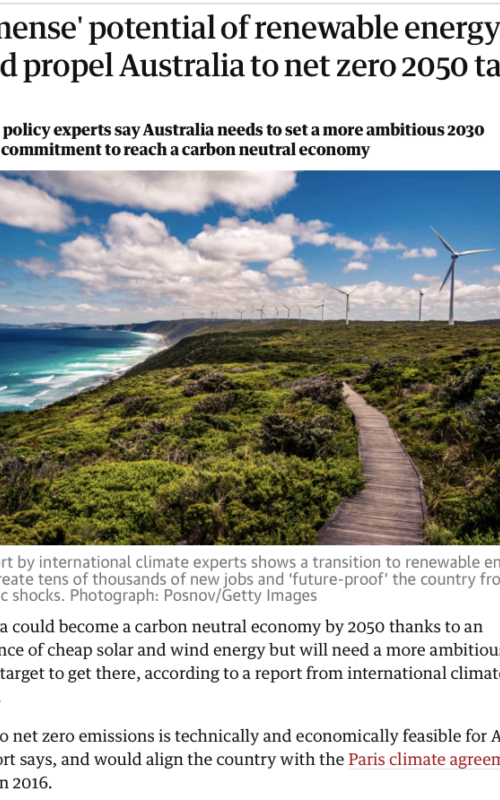
The Guardian
Australia could become a carbon neutral economy by 2050 thanks to an abundance of cheap solar and wind energy but will need a more ambitious 2030 climate target to get there, according to a report from international climate policy experts (Climate Action Tracker). “So many of the policies that have proven to be effective in similar places are not in place in Australia, but if they were it could escalate the transition. It is hard to find a country where the policy gap is so large” - lead author of the report Ursula Fuentes Hutfilter, Climate Analytics.